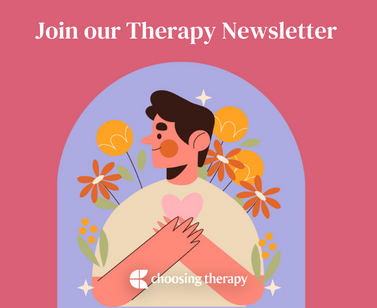
Cymbalta is an antidepressant used to treat generalized anxiety disorder (GAD) and major depressive disorder (MDD). It works by boosting levels of serotonin and norepinephrine in the brain, helping to improve anxiety symptoms. Always consult with your doctor before taking any antidepressants, as they pose the risk for adverse side effects in users.
What Is Cymbalta (Duloxetine)?
Cymbalta, also known by its generic name duloxetine, is an FDA-approved antidepressant for treating major depressive disorder (MDD) in adults and generalized anxiety disorder (GAD) in adults and pediatric patients over the age of seven. Cymbalta belongs to the serotonin and norepinephrine reuptake inhibitors (SNRIs) class of drugs that regulate serotonin and norepinephrine levels in the brain. This helps to improve symptoms of depression and anxiety.1
While effective, Cymbalta will not be recommended to everyone, as the drug will react differently in a person’s body depending on their health and genetic makeup. Adults and children above seven years old can take this antidepressant under their doctor’s guidance.
Online Psychiatry and Medication Management Covered By Insurance Talkiatry can match you with a real psychiatrist who takes your insurance and is seeing new patients. They’re in-network with major insurers and offer medication management. Get started with a short online assessment
Can Cymbalta Treat Anxiety?
If you have been diagnosed with an anxiety disorder, your doctor may prescribe an antidepressant to relieve your symptoms, one of which being Cymbalta. Antidepressants do not cure anxiety, but work to improve and reduce symptoms. Cymbalta belongs to the SNRIs class of drugs and works by regulating levels of serotonin and norepinephrine in the brain.
Cymbalta is FDA-approved for the treatment of anxiety. Because every body reacts differently to its active ingredient duloxetine, symptom improvements vary greatly based on the individual. In some populations, certain antidepressants for anxiety may fail to work or lead to unwanted results.2
Cymbalta can help in the treatment of:3
- Generalized anxiety disorder (GAD)
- Social anxiety disorder
- Panic disorder
- Specific phobias
- Separation anxiety
- Obsessive-compulsive disorders
How to Take Cymbalta for Anxiety
Cymbalta is available as delayed release pellets that you swallow. Cymbalta is usually taken once daily with or without food. Like any other prescription, it should be taken as prescribed by a doctor. Abruptly discontinuing your Cymbalta medication can lead to severe withdrawal symptoms. If you want to stop your medication, consult with your physician to understand any possible risks and side effects.
How Long Does it Take for Cymbalta to Work?
How quickly a person will experience symptom relief while taking Cymbalta depends on several factors, such as their physical health, stress levels, and genetics. Most patients will notice symptom improvement after the fourth to eighth week of initial dosage.4 Cymbalta can also lead to sleep or appetite improvements within the first one to two weeks.2
Cymbalta Dosage for Anxiety Disorders
A Cymbalta dosage for anxiety disorders varies for each individual. Typically, a starting dose for adults is 60 mg per day and 30 mg per day for geriatric and pediatric patients. The maximum dosage for adults, geriatric, and pediatric patients is 120 mg per day.1 In order to ascertain the efficacy of Cymbalta, your doctor will start you off on a smaller dosage to note symptom improvements. Your doctor may increase your dosage after several weeks to the recommended maximum. However, your doctor may consider a better alternative if the medication does not produce desirable results.
Side Effects of Cymbalta While Treating Anxiety
Antidepressants are commonly associated with side effects that may or may not require immediate medical attention. You will likely experience some side effects within the first two weeks of starting your Cymbalta medication. These side effects commonly include dizziness, sleeping difficulty, and diarrhea.
Common Cymbalta side effects can include:1
- Drowsiness
- Fatigue
- Diarrhea
- Constipation
- Headache
- Dry mouth
- Blurred vision
- Sleeping difficulties
- Sweating
- Nausea
- Sore gums
Serious Cymbalta side effects that may require immediate attention can include:1
- Suicidal thoughts or ideation
- Serotonin syndrome
- Severe skin reactions
- Low blood pressure that can cause a fall
When side effects persist or become severe, inform your doctor as soon as possible. Your doctor can help address the problem by providing better alternatives or tapering your dosage.
Popular Choices For Online Psychiatry Talkiatry – Safe, virtual mental health care from doctors who take insurance. Most psychiatry visits cost patients $30 or less* Take a Short Assessment Hims / Hers – Connect with a healthcare provider in 12 to 48 hours.** Free Assessment *Includes copayment, deductible, coinsurance, and $0 Visits. Excludes no shows. **On average. Actual appointment times vary by state and individual patient.
Warnings & Associated Risks of Taking Cymbalta for Anxiety
While Cymbalta commonly results in mild side effects, more severe reactions can occur. How a person’s body responds to the drug, their pre-existing medical conditions, or interactions of substances such as alcohol or other antidepressants can lead to worsened effects. Mixing alcohol with Cymbalta will only worsen symptoms of anxiety. Older populations, breastfeeding and pregnant women, pediatric patients under seven years, and people with pre-existing medical conditions should only take the antidepressant under the guidance of a doctor.1
The medication should be taken as prescribed. Stopping Cymbalta can lead to withdrawal symptoms and serotonin syndrome. This includes worsening symptoms of agitation, irritability, hallucinations, and autonomic instability. If you are considering stopping your Cymbalta medication, consult your physician first.
Can You Overdose on Cymbalta?
It is possible to overdose on Cymbalta, resulting in severe and life-threatening symptoms. In the event of a Cymbalta overdose, call 9-1-1 for immediate emergency assistance. You should call your doctor as soon as possible or visit the nearest hospital quickly.
Possible symptoms of Cymbalta overdose include:
- Vomiting
- Dizziness
- Seizures
- Fast heartbeats
- Coma
Substances to Avoid While Taking Cymbalta
Taking certain medications, herbs, or supplements alongside Cymbalta can change how Cymbalta works in your body or increase the risk for serious side effects. This article does not consider all the possible interactions. Please let your doctor, psychiatrists, and pharmacists know about all of the products you currently use, such as prescription medication, nonprescription drugs, and herbal supplements. Do not start, stop, or change the dosage of any medicines without your doctor’s approval.
Different antidepressants have different chemical components, and their interaction with the body varies from person to person. Therefore, mixing Cymbalta with other antidepressants can be life-threatening, as this can trigger or worsen the side effects of either substance.
Other medications, such as monoamine oxidase inhibitors (MAOIs), can pose a great threat to one’s physical health and life. Cymbalta should not be used within 14 days of stopping MAOIs as it increases the risk of serotonin syndrome. This also increases the risk of overdose, which may require immediate medical assistance.1
Substances that can interact with Cymbalta include:1
- Blood thinners
- NSAIDs
- Other antidepressants
- Water pills
- MAOIs
- Benzodiazepines
- Anti-anxiety medications
- Migraine drugs
- Medication for stomach acid
Alternatives to Cymbalta for Anxiety
Sometimes, taking Cymbalta for anxiety may not work or result in unwanted side effects. This can be influenced by several factors, including how the drug interacts with a person’s body, their current health conditions, or their genetic profile. A prescriber can offer alternatives to Cymbalta, such as Zoloft, Celexa, or Lexapro. Studies suggest that Zoloft may be more effective in the treatment of symptoms relating to anxiety, agitation, and excessive fears.5
Some alternatives to Cymbalta to treat anxiety include:
- Lexapro (escitalopram): Lexapro blocks serotonin reuptake only, while Cymbalta blocks the reuptake of both serotonin and norepinephrine in the neuronal synapse.6
- Zoloft (sertraline): Cymbalta belongs to the SNRIs group of medications used to treat major depressive disorder and generalized anxiety disorder, while Zoloft is an SSRI antidepressant used to treat major depressive disorder.
- Celexa (citalopram): Celexa is an SSRI antidepressant used to treat depression, while Cymbalta is an SNRI antidepressant used to treat MDD and GAD.
Questions to Ask Your Health Team
Cymbalta is an antidepressant that can lead to severe side effects if not taken as prescribed by your doctor. Before starting Cymbalta, you must consult with your doctor to understand the possible risks.
Cymbalta medication can be prescribed by a:
- Doctor
- Therapist
- Registered nurse
- Psychiatrist
Questions to ask your care team about whether Cymbalta is right for you include:
- Will Cymbalta be effective in treating my anxiety?
- Is Cymbalta more effective at treating anxiety than the medication I am already taking?
- Can I take Cymbalta with the medication I am already taking?
- Are there alternatives to Cymbalta to treat my anxiety?
- What are the benefits of Cymbalta?
- How can I stop taking Cymbalta if I cannot tolerate its side effects?
- Should I be concerned if I mix the antidepressant with alcohol?
- What role will my health condition and medical history play when taking Cymbalta?
- What side effects should I watch out for?
- How do Cymbalta vs Effexor compare for depression and anxiety treatment?
Final Thoughts
Cymbalta can be an effective medication for your anxiety symptoms. However, taking the antidepressant is associated with common side effects which may or may not require immediate medical assistance. Talking with your doctor before starting the medication is essential as they will determine if Cymbalta is an appropriate prescription for you.
To help our readers take the next step in their mental health journey, Choosing Therapy has partnered with leaders in mental health and wellness. Choosing Therapy is compensated for marketing by the companies included below. Virtual Psychiatry Talkiatry – Get help from a real doctor that takes your insurance. Talkiatry offers medication management and online visits with expert psychiatrists. Take the online assessment and have your first appointment in days. Free Assessment Hims / Hers If you’re living with anxiety or depression, finding the right medication match may make all the difference. Connect with a licensed healthcare provider in just 12 – 48 hours. Explore FDA-approved treatment options and get free shipping, if prescribed. No insurance required. Get Started Free Prescription Discount Card Optum Perks Save up to 80% on most prescriptions. Optum Perks provides discounts at over 64,000 pharmacies nationwide. No memberships or costs to you, ever. It’s really that easy. Get your card and start saving. Get the discount card! Online Pharmacy HealthWarehouse Save 30 to 90% on generic prescription medication. With a fully in-house customer service department, help is just a call away. Visit HealthWarehouse Talk Therapy BetterHelp – Get support and guidance from a licensed therapist. BetterHelp has over 20,000 therapists who provide convenient and affordable online therapy. Complete a brief questionnaire and get matched with the right therapist for you. Get Started Anxiety Newsletter A free newsletter from Choosing Therapy for those impacted by anxiety. Get helpful tips and the latest information. Sign UpAdditional Resources
Online Anxiety Test A few questions from Talkiatry can help you understand your symptoms and give you a recommendation for what to do next. Best Online Psychiatry Services Online psychiatry, sometimes called telepsychiatry, platforms offer medication management by phone, video, or secure messaging for a variety of mental health conditions. In some cases, online psychiatry may be more affordable than seeing an in-person provider. Mental health treatment has expanded to include many online psychiatry and therapy services. With so many choices, it can feel overwhelming to find the one that is right for you.







